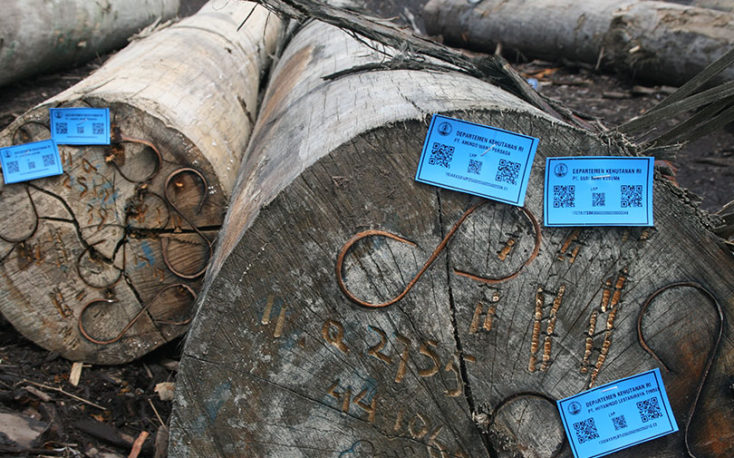While there was broad support for the FLEGT process and the EUTR, there was also a call for the FLEGT measures to be extended and deepened in various ways.
CEI Bois called the EUTR to be extended to “include all wood products, printed products and furniture products currently outside the scope, except for recycled materials and wood packaging for transport” and suggested this would “increase the coverage of imports of ‘high-risk’ wood by almost 30%”.
Other organisations called for more specific changes in EUTR product scope, for example EOS, the European Sawmillers Organisation wants the law to be extended to include HS4402 (charcoal), HS4404 (hoopwood, poles etc), and HS4419 (Tableware and kitchenware); EFIC asked that HS9401 (wooden seating) and 4421 (other wood products such as coffins); and the FFIF specified printed papers (HS49) as well as wooden seating. Several commentators highlighted the need to extend FLEGT licensing to more countries as quickly as possible.
ETTF said that the “FLEGT process started in 2003. Up to now there is only one country that has a FLEGT system in place, namely Indonesia – this is clearly not enough.” CEI-Bois “recommends the EU to speed up the process with producing countries in order to increase the volumes of FLEGT-licensed wood available for the European market”.
Similarly, FederlegnoArredo observed “quantities of timber or timber products imported into the EU under the [FLEGT licensing] scheme are still too low. Speeding up the implementation of VPA’s on the Congo Basin and parts of West Africa will boost the number of FLEGT licences”.
The Italian association also mentioned “Insufficient promotion on benefits of FLEGT licensing and FLEGT VPA initiative amongst EU’s member states and stakeholders both in the EU and from countries of harvest.”
Some commentators called for further efforts to ensure effective enforcement of EUTR. CEI-Bois noted the need to “ensure a consistent implementation and enforcement by EU Member States. Different levels of stringency of the controls performed by Competent Authorities lead to an uneven playing field and ultimately undermine the goal of the Regulation”.
EFIC said that “the experience shared by EFIC members demonstrates a lack of correct implementation of the existing EUTR rules” and called on the EC to “coordinate a more consistent enforcement of the EUTR….in particular, there is an urgent need to close existing gaps and harmonise rules”.
EOS called on the EC to give “clear indication on respective legality risks in different countries and on the appropriate and expected risk mitigation measures for ALL market participants encountering these risks”.
IKEA said that “we see implementation issues severely slowing its potential to contribute to responsible wood sourcing. Current processes put up obstacles for both large and small operators” and suggested that “Member States define ‘acceptable due diligence systems’ in different ways”.
According to IKEA, “this makes it difficult for operators to efficiently meet the requirements without changing the process for each Member State. This, combined with inconsistent enforcement and auditing procedures (at times procedures varying from case to case within the same Member State), is inefficient and expensive for everyone involved.”
Fedustria, the Belgian timber industry association, said that “there is no clear guidance on what is exactly expected from the operators. It is essential that the necessary guidelines and recommendations are provided, which give the companies the opportunity to improve their due diligence system. We have repeatedly indicated that the objective of the EUTR should not be to punish, but to work towards a better system with all stakeholders in a constructive manner.”
Fedustria raised concerns about the methodology for targeting specific operators in EUTR; “We have observed that the same (major) players are continually subject to inspections, while many small-scale operators slip through the net. However, it is precisely the major players who have developed and continuously refine good due diligence systems”.
Fedustria also identified a possible loophole in the EUTR: “companies being registered in a European country, custom clear goods in another European country than their registered country. As a consequence, they are not being controlled by the Government of the importing country, since they are not registered with any legal set-up (imports are done through fiscal representation) and furthermore they are also not controlled by their governments in their home countries, since there are no registries of any imports”.
Some NGOs were also critical. Earthsight observed that “while there have been laudable steps taken by a few Member States to enforce this law over the years, these instances have remained the exception rather than the rule. It has now been seven years since the EUTR entered into force and the enforcement response to illegal logging cases, even cases where plentiful evidence of illegality related to specific companies or supply chains has been made public, has been poor”.
Global Witness said that they "undertook several investigations on trade of illegal timber in the past years which showed how illegally harvested tropical timber is still being placed on the EU market. These revealed weaknesses in the enforcement of EUTR by certain member states which are undermining the effectiveness of the law”.
The NGO France Nature Environnement requested that “the quality assessment of the EUTR and FLEGT explore and identify the factors hindering the application of the EUTR.
Indeed, this assessment must assess the legal and operational elements preventing its effective implementation” and suggested that “in France, only 30 agents from the regional forestry and timber services have been trained to control nearly 5,000 loggers and sawyers.
With such a limited resource, the EUTR cannot apply properly”.








Leave a Reply